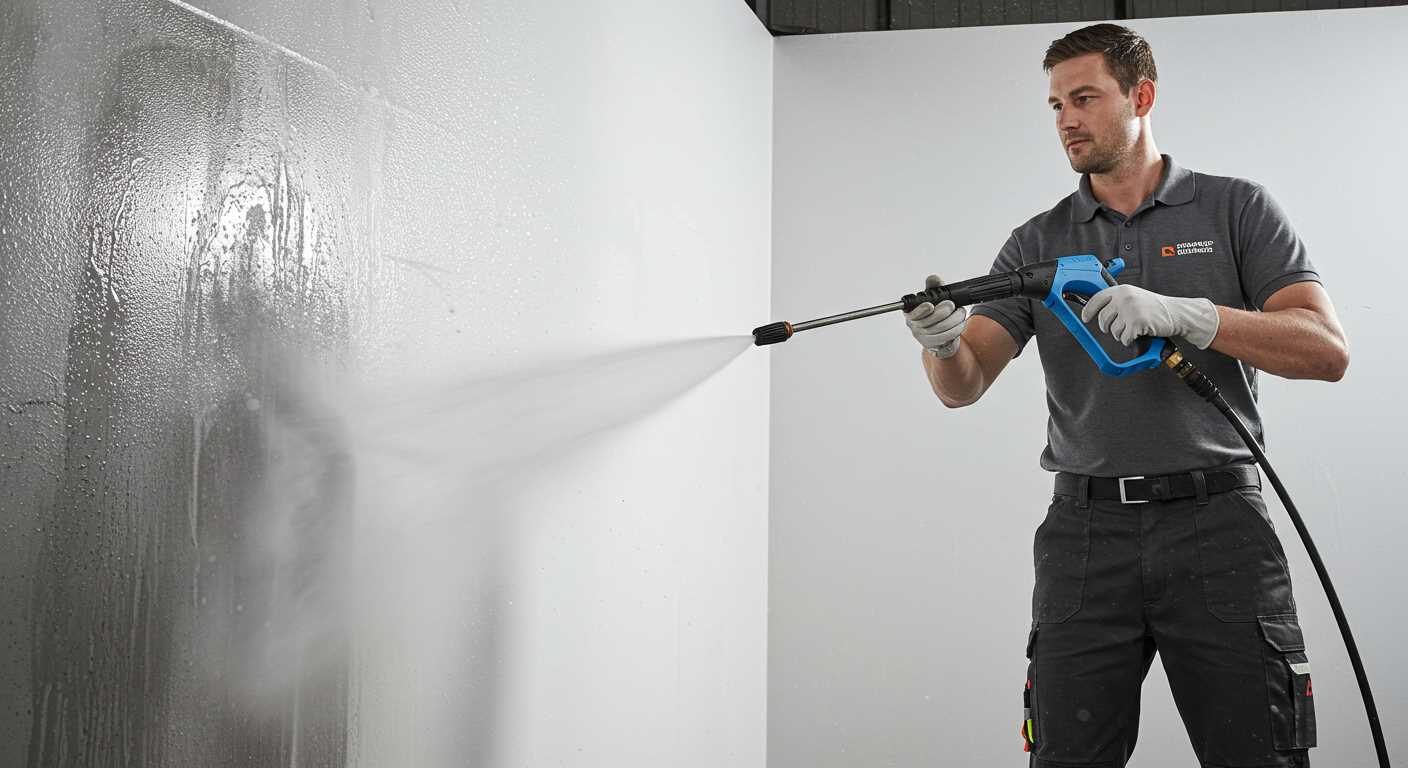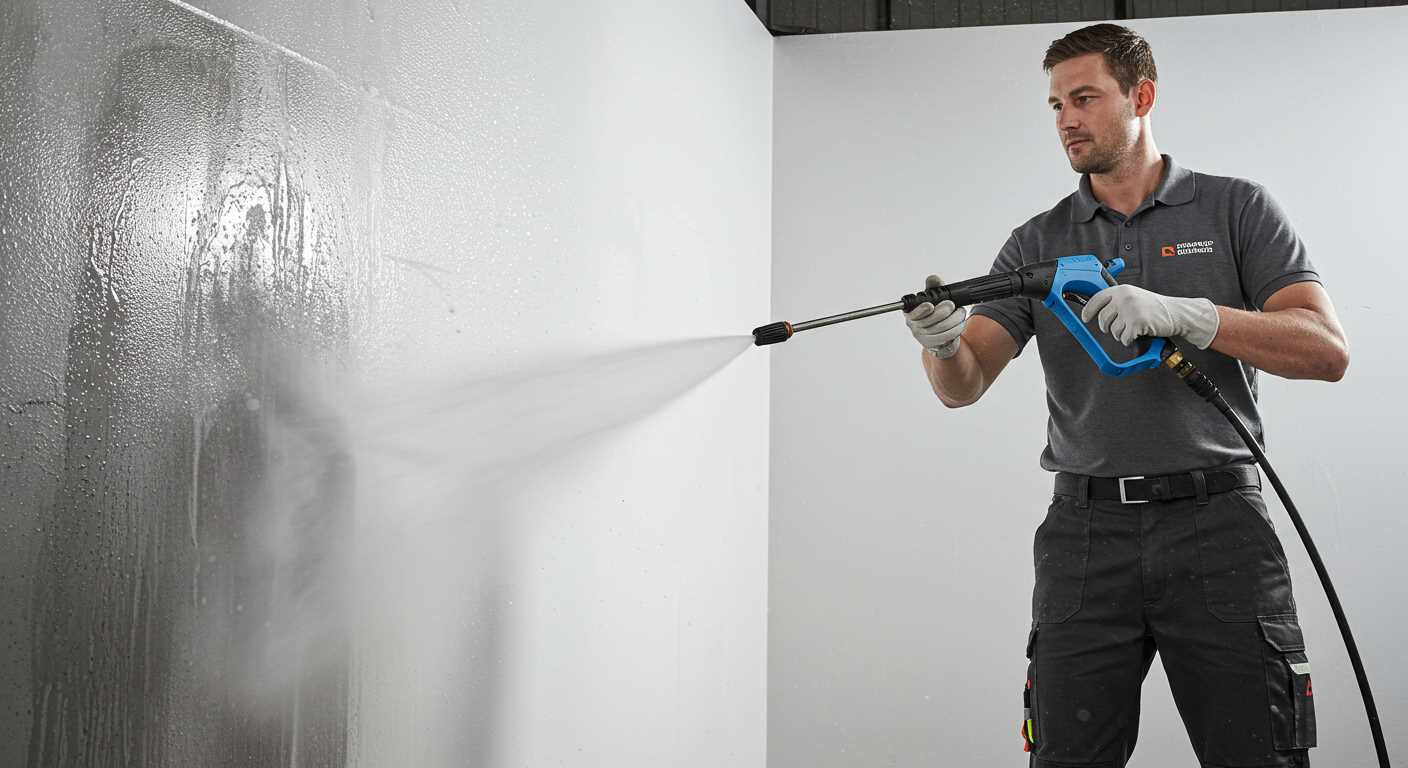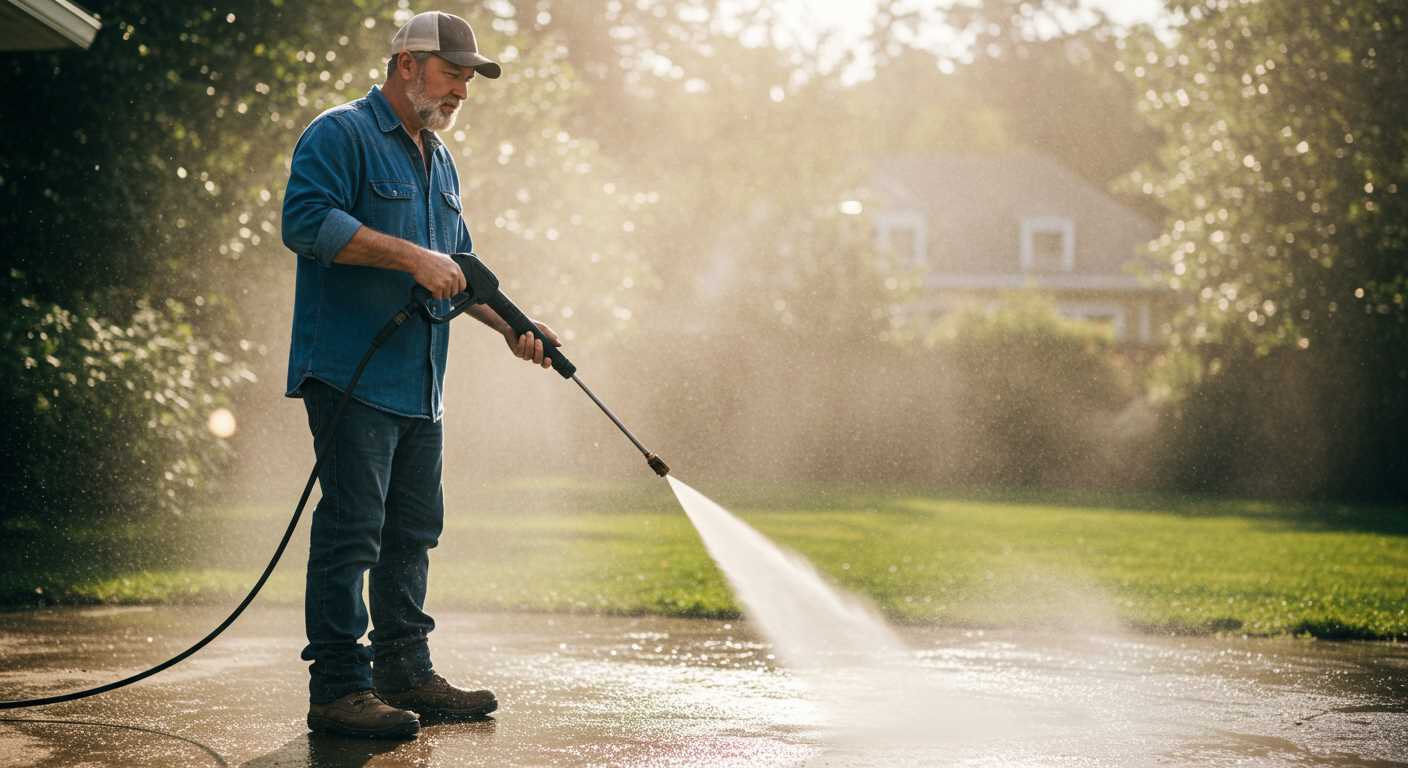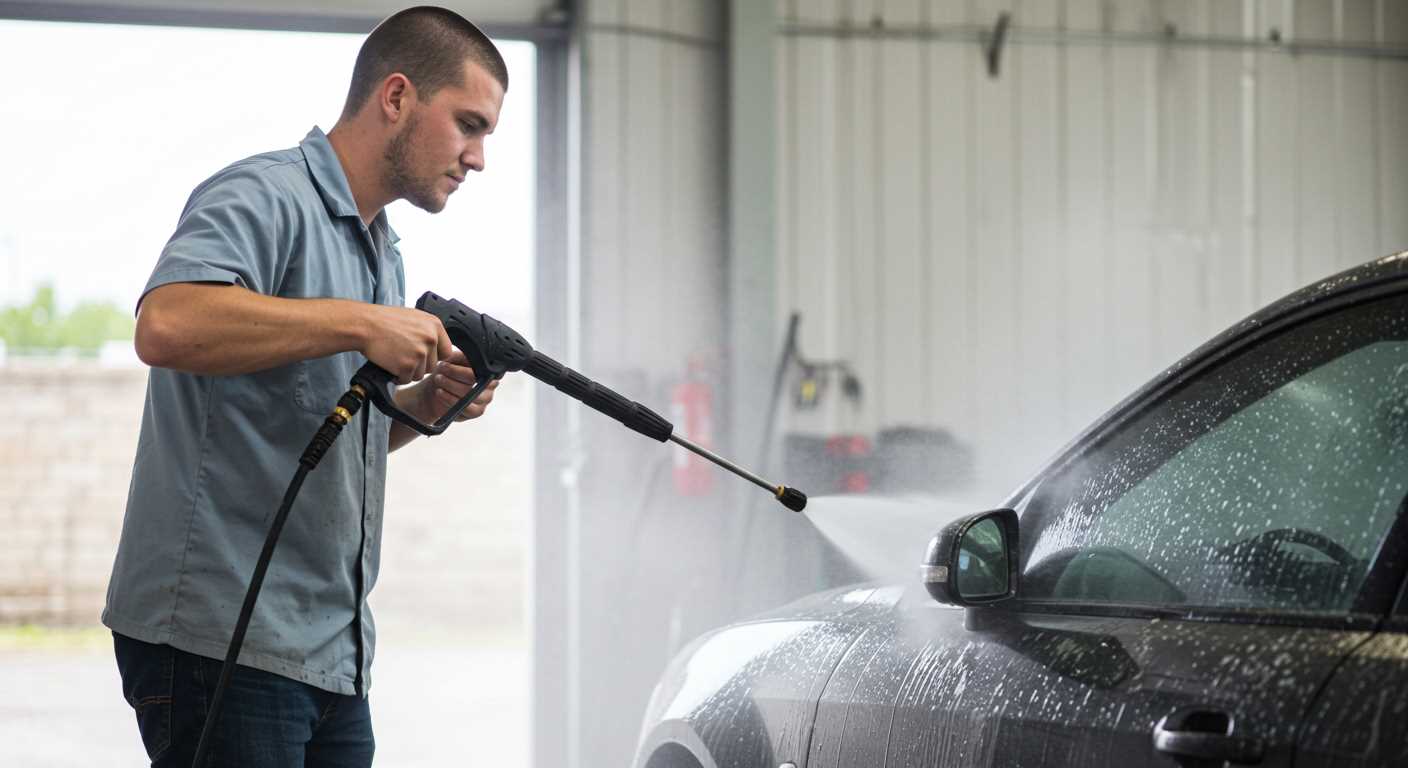




My experience in the cleaning equipment industry has taught me that high-pressure cleaning can raise valid concerns regarding plumbing systems. Directing a powerful stream of water into fixtures or drains can create unintended consequences. In my practical tests, I discovered that excessive force can dislodge debris but may also cause loose connections to worsen or even lead to leaks.
When applying high-velocity jets to outlets, the pressure can force particles deeper into the system, which might lead to blockages further along the line. I’ve seen this happen firsthand; a quick cleaning turned into a costly plumbing job because debris was pushed into an already vulnerable section of the piping. It’s crucial to assess the condition of your plumbing before attempting any aggressive cleaning methods.
In my early years as a consultant, I would often advise homeowners to consider less intense alternatives for routine maintenance. Regular cleaning using gentle methods can prevent the buildup of grime without putting stress on the plumbing. If a thorough clean is necessary, I recommend consulting a professional who understands the nuances of your specific plumbing setup.
Potential Risks of High-Pressure Cleaning Equipment on Plumbing Systems
Direct application of intense water streams to drainage systems can result in various issues. It’s critical to assess the type of material used in your domestic plumbing prior to any cleaning activity.
Common Concerns
- Pipe Material: PVC, copper, and cast iron react differently. PVC is susceptible to cracks under high intensity, while older cast iron may have weakened joints.
- Blockages: Forceful jets can dislodge debris, but they might also push blockages deeper, creating more significant clogs down the line.
- Joint Integrity: Seals and joints can become compromised, leading to leaks and costly repairs.
Best Practices
- Inspect plumbing for any pre-existing weaknesses or signs of wear.
- Utilise a lower pressure setting if cleaning is necessary, particularly in older systems.
- Consider alternative methods, like a plumber’s snake, for clearing stubborn blockages.
- Consult a professional if unsure about the condition of your plumbing.
In my experience, being cautious and informed can save a lot of hassle and expense. Always weigh the benefits against the potential risks before proceeding with high-intensity cleaning methods in your home’s plumbing.
Understanding Pressure Washer Functionality
To ensure proper operation, pay close attention to the specifications of the equipment. Each model varies in terms of PSI (pounds per square inch) and GPM (gallons per minute). Higher PSI ratings are ideal for tough surfaces, while lower ratings are suitable for delicate tasks.
During my years in the industry, I encountered many misconceptions regarding their capabilities. A common misunderstanding is that higher pressure always equates to better cleaning. In reality, pressure should be adjusted based on the surface being treated. For instance, washing a wooden deck requires a gentler approach to avoid splintering.
The nozzle type significantly impacts performance. Various nozzle tips create different spray patterns; for example, a 0-degree nozzle delivers a concentrated stream, while a 40-degree nozzle disperses the water over a wider area. Using the right nozzle for the job can enhance cleaning efficacy while minimising risk.
Another factor to consider is the attachment of detergents. Many models have a detergent tank or a separate injector system. Using the appropriate cleaning solution can boost results, particularly for stubborn grime. However, it’s crucial to rinse thoroughly to prevent residue build-up.
Maintenance of the equipment is key to longevity and safe operation. Regularly check hoses, connections, and filters. A blocked filter can lead to pressure fluctuations that may adversely affect performance. I’ve seen units fail due to neglect in this area, causing unnecessary expenses.
Ultimately, understanding the intricacies of these machines empowers users to achieve optimal results. With proper knowledge and care, these tools can be an invaluable asset for maintaining cleanliness in various environments.
Types of Pressure Washers and Their Impact
Electric models excel in residential tasks. They deliver moderate force, suitable for cleaning patios and vehicles without overwhelming indoor systems. I recall a time when I recommended an electric unit to a homeowner dealing with mild grime on their driveway. It performed admirably without causing any distress to their plumbing.
Gas-powered variants generate higher pressure, making them ideal for heavy-duty chores like stripping paint or removing stubborn stains. However, I’ve seen instances where users, unaware of the potential repercussions, applied too much force. This resulted in issues within the plumbing, particularly with older systems. Always assess the pressure output against the specifications of your infrastructure before opting for a gas unit.
Hot water cleaners tackle grease and oil effectively, often used in commercial settings. I remember a restaurant owner who swore by his hot water cleaner for maintaining cleanliness in the kitchen. While it worked wonders on surfaces, I advised him to be cautious about runoff entering drainage systems, as the high temperatures could affect certain materials.
Cold water units serve as a versatile choice for lighter tasks. Their lower impact can be beneficial in residential settings, especially for routine maintenance. Once, a neighbour borrowed my cold water machine for her garden furniture. She was thrilled with the results and relieved that her plumbing remained unaffected.
Understanding the type of equipment and its applications is key to safeguarding plumbing systems. Always match the pressure output to the requirements of the task at hand. Investing time in research pays off, ensuring the longevity of both your cleaning equipment and plumbing infrastructure.
Common Pipe Materials and Their Vulnerabilities
When tackling the task of cleaning drainage systems or pipes, understanding the materials and their weaknesses is critical. For instance, PVC and ABS plastics are widely used due to their resistance to corrosion, but they can be susceptible to cracking under high stress. I recall a project where a client attempted to clear a blockage in a PVC pipe with excessive force. The result was a costly repair, as the pipe fractured and required replacement.
Metal Pipes
Metal pipes, such as copper and galvanized steel, offer durability but come with their own risks. High-pressure streams can dislodge solder joints in copper piping, leading to leaks. I once observed a scenario where a homeowner lost water pressure after attempting to clean a copper system. The intense force caused a joint to separate, leaving them scrambling for a plumber.
Cast Iron and Clay Pipes
Cast iron pipes are robust but can rust over time. While they may withstand pressure better than plastics, a sudden surge can loosen joints or cause cracks. Clay pipes, on the other hand, are fragile and can easily break under high pressure. I’ve seen clay pipes shatter during aggressive cleaning attempts, resulting in extensive excavation work. For those looking to maintain their systems, consider the best car wash liquid for pressure washer for a safer cleaning solution that minimises risks.
Signs of Damage from Pressure Washing
Identifying issues caused by high-intensity cleaning can save time and money. Here are key indicators to watch for:
- Unusual Noises: If you hear clanking or rattling sounds, this may suggest loose fittings or components within the plumbing system.
- Decreased Water Flow: A noticeable drop in water pressure could indicate blockages or leaks, potentially caused by dislodged debris.
- Visible Leaks: Puddles or damp spots near fixtures or along walls may point to compromised seals or cracks.
- Unpleasant Odours: Foul smells can arise from stagnant water trapped in damaged areas, signalling potential internal issues.
- Frequent Clogging: If drains repeatedly clog after cleaning, it might mean that pressure has shifted debris deeper into the system.
- Shifting or Unstable Fixtures: If sinks or toilets feel loose, this could be a sign that connections have been disrupted.
During my years in the cleaning equipment industry, I encountered numerous cases where mishaps during high-pressure cleaning led to significant plumbing issues. One memorable instance involved a homeowner who experienced persistent drainage problems after using a powerful cleaning device. The culprit turned out to be a combination of dislodged debris and weakened pipe joints, which had gone unnoticed until the situation escalated.
Regular inspections after intense cleaning sessions can help catch these signs early. Keeping an eye on water flow and listening for unusual sounds can prevent more extensive repairs down the line.
Best Practices for Using Pressure Washers on Pipes
For optimal results and to safeguard your plumbing, adhere to these guidelines:
Select Appropriate Accessories
- Opt for extension wands to reach difficult areas without excessive force.
- Utilise nozzle attachments that provide a wide spray pattern to distribute pressure evenly, minimising the risk of harm.
Adjust Pressure Settings
- Always start with the lowest pressure setting. Gradually increase as needed for stubborn debris.
- For sensitive materials, such as PVC, keep the pressure below 1500 PSI to prevent cracks or ruptures.
Maintain Safe Distance
- Keep the nozzle at least two feet away from the surface you’re cleaning. This distance helps reduce concentrated force on one area.
- Move the nozzle in sweeping motions rather than holding it in one spot to avoid overexerting pressure.
Inspect and Clean Regularly
- Before beginning, check pipes for pre-existing vulnerabilities like cracks or corrosion.
- Regularly clear the nozzle to prevent blockages that can cause back pressure and potential ruptures.
Following these practices not only enhances cleaning efficacy but also extends the lifespan of your plumbing system. Always prioritise safety and care over convenience to achieve the best results.
Alternatives to Pressure Washing for Pipe Cleaning
For those seeking safer options for maintaining plumbing systems, hydro jetting stands out. This method employs high-velocity water jets to clear blockages and buildup without the risk of harming the infrastructure. It’s particularly effective for stubborn clogs caused by grease and mineral deposits.
Another viable choice is mechanical snaking. This technique involves inserting a flexible auger into the pipes, breaking apart and removing obstructions. It’s a straightforward solution for many homeowners and can be executed with minimal fuss.
Enzymatic drain cleaners offer a more environmentally friendly alternative. These products use natural enzymes to digest organic material in pipes. While they may take longer to work compared to more aggressive methods, they pose less risk to the pipe material and the broader ecosystem.
Regular maintenance with baking soda and vinegar is a simple yet effective preventive measure. This combination can help keep pipes clear of minor buildups and is safe for most plumbing systems.
Lastly, professional inspections and cleanings can provide peace of mind. Experienced plumbers can assess the condition of your plumbing and recommend the best methods for cleaning and maintaining it without compromising integrity.
Consulting Professionals: When to Seek Help
If you notice persistent clogs or unusual sounds emanating from your plumbing, it’s time to consult a professional. Relying solely on DIY methods can lead to further complications.
In my years of working with cleaning equipment, I encountered numerous instances where homeowners attempted to clear their drainage systems without expert assistance. One case that stands out involved a couple who, after repeated unsuccessful attempts at clearing their kitchen pipes, decided to use a high-intensity cleaning method. The result was a shattered section of their drainage system, leading to costly repairs. This could have been avoided had they sought help earlier.
Here are specific indicators that warrant professional intervention:
| Signs | Recommended Action |
|---|---|
| Frequent blockages | Contact a plumbing service to investigate underlying issues. |
| Water backing up | Immediate professional assessment is advisable to prevent further damage. |
| Unusual sounds | Consult a plumber to evaluate any potential structural concerns. |
| Unpleasant odours | Seek expert help to identify and rectify the source of the problem. |
| Slow drainage | Professional cleaning may be necessary to restore functionality. |
It’s also wise to consult an expert before attempting any high-pressure cleaning methods, especially if your plumbing is older or made from more delicate materials. During my tenure, I have seen that some materials, such as PVC or cast iron, can react unfavourably to intense water jets. A plumbing specialist can provide tailored advice on the safest cleaning methods for your specific system.
In conclusion, when in doubt, don’t hesitate to reach out to professionals. Their experience can save you from unnecessary expenses and ensure your plumbing remains in optimal condition.
Preventative Measures to Avoid Pipe Damage
To safeguard your plumbing system, consider employing a few simple strategies before opting for high-intensity cleaning methods. Start by inspecting your plumbing thoroughly. Regular checks for cracks, leaks, or weak points can help identify vulnerabilities that may worsen under high pressure.
Routine Maintenance
Engage in routine maintenance, such as flushing your system with warm water and vinegar to remove buildup. This natural method can help maintain flow without subjecting your pipes to harsh techniques. Additionally, invest in a plumbing inspection at least once a year. A professional can pinpoint potential issues and recommend appropriate solutions.
Choosing the Right Equipment
Selecting the appropriate equipment is crucial. If you decide to utilise a cleaning device, ensure it’s suitable for your plumbing type. Low-pressure options or those designed for delicate surfaces can effectively clean without causing harm. Always adhere to manufacturer guidelines for both the equipment and your plumbing system.
| Measure | Description |
|---|---|
| Inspection | Check for leaks and weak spots regularly. |
| Routine Maintenance | Flush with warm water and vinegar. |
| Professional Assessment | Annual inspections by a plumbing expert. |
| Equipment Selection | Use low-pressure devices designed for delicate cleaning. |
By implementing these measures, you can significantly decrease the risk of harming your plumbing while maintaining cleanliness. Remember, a proactive approach is always preferable to a reactive one.
Real-Life Case Studies of Pressure Washer Effects on Pipes
During my decade in the cleaning equipment industry, I encountered numerous instances highlighting the repercussions of high-velocity water jets on plumbing systems. One case involved a homeowner attempting to clear a stubborn blockage in their sewer line. They opted for a high-powered device, believing it would swiftly eliminate the obstruction. Instead, the intense force dislodged older joints, leading to significant leaks and costly repairs.
Another memorable experience involved a commercial property manager who decided to clean the exterior drainage pipes. The system, constructed from PVC, was already showing signs of wear. After applying excessive force, the manager discovered several cracks forming. This scenario underscores the importance of assessing the material’s condition before applying aggressive techniques.
In a different situation, a client with cast iron pipes sought to rejuvenate their plumbing. They were thrilled at the prospect of restoring flow but failed to recognise the potential risks. After using a high-pressure unit, they noticed rust particles coming through the fixtures. This highlighted how certain materials can react adversely to such methods, requiring alternative cleaning strategies.
One homeowner encountered tree roots infiltrating their underground network. They decided to employ a device without understanding how it would affect their aging infrastructure. The result was a blown joint that not only led to significant water loss but also required extensive excavation to rectify the problem. This incident illustrated that while these tools can be powerful allies, they can quickly become adversaries if used recklessly.
Finally, a construction company sought to clean their metal piping systems before installation. They were eager to remove any contaminants. However, without proper guidance, they applied too much force, resulting in warping of the pipes. This scenario serves as a cautionary tale about the balance required when utilising equipment for maintenance.
From these experiences, I’ve learned that understanding the specific conditions and material properties of your plumbing is crucial. Always assess the situation carefully before proceeding, and consider consulting with a professional when in doubt. These machines can be incredibly useful but require respect and knowledge to avoid unintended consequences.
FAQ:
Can using a pressure washer damage inside pipes?
Yes, using a pressure washer can potentially damage inside pipes. The high pressure of the water can dislodge debris but can also cause harm to older or weakened pipes. It is crucial to assess the condition of the plumbing system before using a pressure washer, as this equipment is designed for external cleaning and may not be suitable for all internal applications.
What types of pipes are most at risk when using a pressure washer?
Older pipes, particularly those made of materials like PVC or clay, are more susceptible to damage from pressure washing. If the pipes have existing weaknesses, such as cracks or corrosion, the intense pressure can exacerbate these issues. Therefore, it’s advisable to inspect the pipes and consider alternative cleaning methods if they are in poor condition.
How can I safely clean my pipes without risking damage?
To clean pipes safely, consider using chemical drain cleaners designed for the specific type of blockage you are facing. Alternatively, a plumber’s snake can effectively remove debris without high pressure. In some cases, hydro jetting performed by a professional may be a safer option, as they can adjust the pressure according to the pipe material and condition.
What signs indicate that my pipes may be damaged after using a pressure washer?
Signs of potential pipe damage include unusual noises when water is running, slow drainage, or visible leaks. If you notice any of these issues after using a pressure washer, it may be wise to consult a plumber to assess the situation and prevent further damage.
Are there any alternatives to pressure washing that can help maintain pipes?
Yes, there are several alternatives to pressure washing for maintaining pipes. Regular maintenance, such as using enzyme-based cleaners, can help prevent build-up without the risk of damage. Additionally, routine inspections by a professional plumber can identify potential issues before they become serious problems, ensuring your plumbing system remains in good condition.





.jpg)


